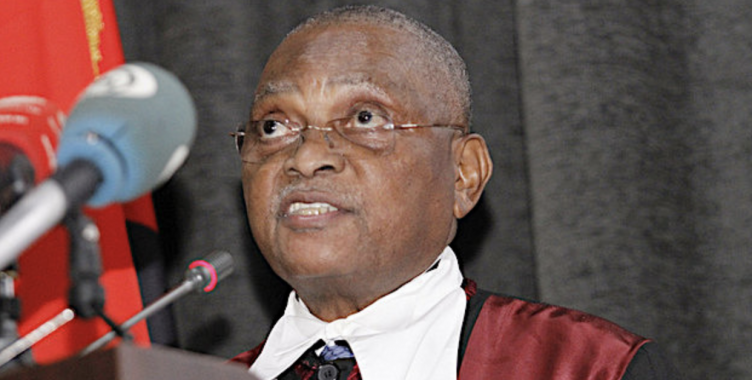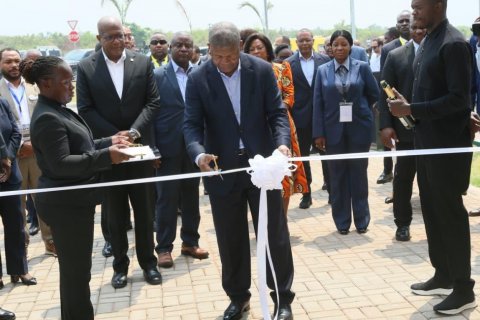Manuel Aragão, appointed in November 2017 by the President to the position, has been in the news in recent days, as he distanced himself from "most of the decisions" contained in the ruling that approved the constitutional revision, warning of the "suicide of the democratic rule of law" by admitting the hierarchy between higher courts.
For Manuel Aragão, the existing jurisdictional system in Angola "is diffuse, where there is a common jurisdiction headed by the Supreme Court (TS) and a specialized jurisdiction (Constitutional Court) and each one of these bodies is called, according to its nature to answer the questions submitted to them".
"In the rule of law, this structure and organization is determined in order to ensure the realization and effectiveness of other principles, such as the principle of the right to effective judicial protection," reads the explanation of vote of the presiding judge of the TC, who voted against the Constitutional Revision Law (CRL).
The plenary of the judges of the TC approved the LRC, an initiative of João Lourenço, rejecting only the rule on the submission of reports from the higher courts - TC, TS and the Supreme Military Court - to the National Assembly and the President.
The validation of the LRC is expressed in ruling 688/2021, on the preventive monitoring of the LRC, consulted by Lusa, which states that the revised legal diploma "is in accordance with the principles and limits established in the Constitution of the Republic of Angola".
At least two, of the 10 judges of the TC, voted against the LRC, namely Carlos Teixeira and Manuel Aragão.
"The Constitutional Court is not called upon to recommend as can be seen in the judgment under examination. Such recommendations tend to show an invasion in the exercise of legislative powers, infiltrating as an incident in the legislative procedure, disturbing the principle of separation of powers," said the magistrate in his explanation of vote.
The LRC proposes that the superior courts of the Republic of Angola are the TS, the TC and the Supreme Military Court, "altering the original provision of the superior courts, but maintaining the respective functions".
In Manuel Aragão's opinion, since the ruling maintains the structure and functioning of the TS and TC, "admitting the existence of a hierarchy (whether functional or protocol) between them, may constitute a suicide to the democratic rule of law".
In so far as, he argues, its effectuation "may create damage to legal certainty and security, as to the enforcement of their decisions".
By proposing the aforementioned article, the judicial magistrate argues, the LRC "contradicts the functional structure of the Supreme and Constitutional Courts, taking into account the nature of each of them. The Supreme Court as the highest organ of common jurisdiction and the Constitutional Court as the highest interpreter of the Constitution and supervisor of the organs of state power".
The new order of precedence "is merely protocol and does not affect the competence of each of the higher courts. It is the understanding of the Constitutional Court that the rule respects the material limits established by the CRA," the plenary, however, said.
The ruling validated the norms about the retirement at age 70 of judges of any jurisdiction, the independence of the National Bank of Angola (BNA), the voting of Angolan citizens abroad, the limits of private property and the withdrawal of the gradualism in the CRA in force.
The unofficial, mandatory and permanent electoral register, the updating of the electoral register abroad, the date for the general elections, which should be held "preferably during the second fortnight of August", the extension to 15 members of the Council of the Republic also deserved the TC's approval.
In relation to the retirement of judges at the age of 70, Manuel Aragão states that the referred rule is "confusing and has numerous unconstitutionalities, assuming that the interruption of the mandate for the functions of counselor judge, outside the common jurisdiction, may have reached the age foreseen with the retirement, manifestly violates the principle of irremovability of judges".
The presiding judge of the TC also considers that the "right and limits of private property", foreseen in the LRC, "not having consecrated the principle of compensation, for just cause or as due, violates the principle of private property consecrated in article 14 of the CRA".
The Constitutional Revision Law will be returned to the President for referral back to parliament as the legislative body.







